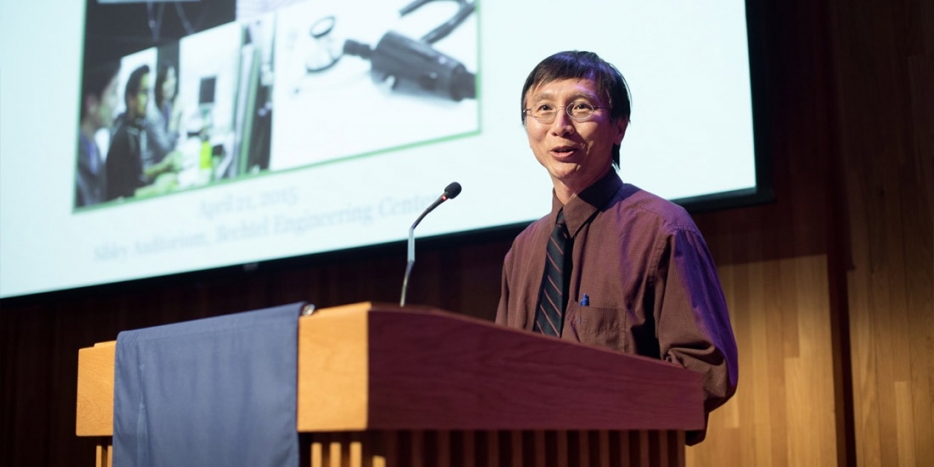
On Tuesday, April 21, we announced a generous gift from Pantas Sutardja and Ting Chuk, which renamed our program to the Sutardja Center for Entrepreneurship & Technology. After the event, we spoke to Pantas, the cofounder of Marvell Technology Group. He discussed the necessity of encouraging graduate students to take risks and the importance of open source in the growth of the tech world and how it has changed over time.
What are your thoughts about the Center’s ten years of work and what are your expectations for its next decade?
P: I don’t know what the expectation is, but I think the staff is doing a great job. Right now, if you look at it, we have a lot of participation from the undergraduate side. I feel it’s also important to engage graduate students, because after all, they are the ones that invest a lot more in deeper technology and things like that. Young kids want to do social networking stuff, so you don’t need to encourage them further to do that.
How do we engage the grad student population, who do so much work and also have the same kind of spirit? I think that’s the part that I understand [the Center’s] team is trying to do, to try to expand that, and I hope that we head in the direction of encouraging grad students to be a little bit more risk-taking. Of course I understand technology is so high-tech that [it] requires deep pockets; it’s not that all of them can be funded by a startup. They really need to work for big companies, but there are all these other in between things and we want to encourage them to take risks, to go out and do something. I’m not saying that working for big companies is something wrong, but at least they also should understand the process.
How do you think things have changed since you were a student?
P: The younger generation wants instant gratification. I don’t know if that’s good or not, but it’s “I want it now.” Of course it’s just a confluence of vision and the available technology. Even if you had this great idea 20 years ago, probably it would have been hard to set a company. I think one thing that people didn’t talk about [in the event] is the open source movement that enables all these great companies. Google wouldn’t be around if open source software wasn’t there. All these things are available to anybody who wants to use them.
It’s all timing. Things are meant to happen only when certain things happen first, and those things just happened in the last decade.
Where do you think the next big thing is going to be?
P: If I knew that… I mean, I know where to invest and things like that… but that’s really tough. Ideas happen because people come to a consensus, “This is what we want.” And then somebody grabs it and [recognizes it as an opportunity.] It’s all about being in the market, understanding the needs of other people, and working very hard. It’s not an easy life.
I’ve been there too, I had the same feeling: “Can you make it?” At some point in time you have some fear, it’s pretty normal. The one thing that you cannot do is give up.
Do you have any specific messages for the students?
P: While you are here, take chances. It gets incredibly difficult when you have other things attached to you, like children, a spouse… Once you have that, people tend to be more conservative. So while you are not attached to anything, don’t be afraid of making mistakes, try what you like. Sooner or later, if you are passionate enough and you don’t give up, and if you are persistent, you will find a niche; you will find a thing that you like and that you could be.
This interview has been edited to facilitate the reading experience. The content has not been altered.

